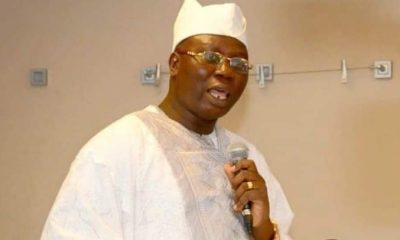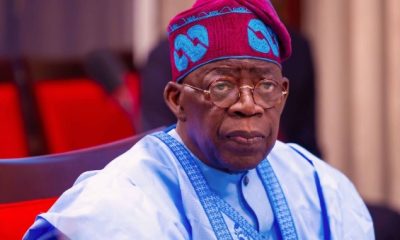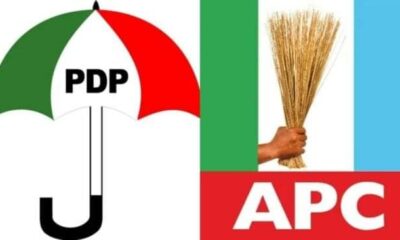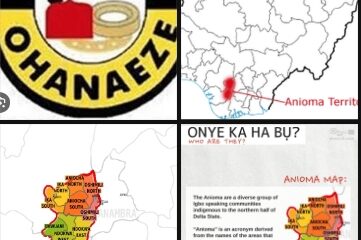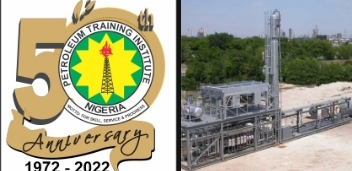Editorial
Nigeria May Become Poorer By Unwisely Following IMF And World Bank Policie
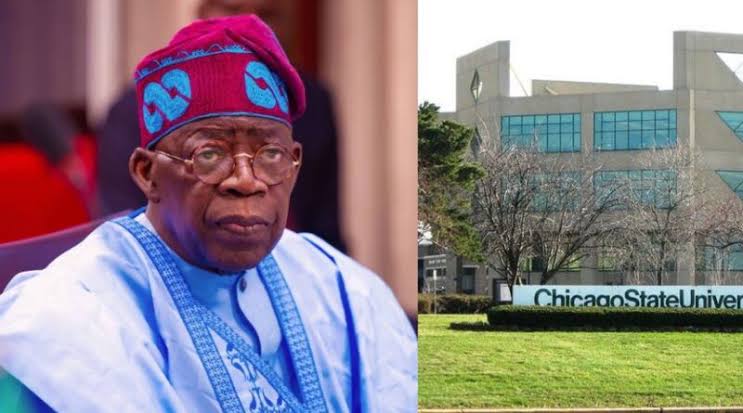
By Festus Tokunbo
Published 17 hours ago on October 18, 2023
A Dutch Professor once told me; “the history of humanity is a history of exploitation of all kinds”. I have found this to be true and don’t expect any changes in decades. The under-development of Nigeria can partly be blamed on imperial policies of the west promoted through institutions such as the IMF and World Bank, in addition to the corrupt practices of the country’s political system. Nigeria is potentially, one of the richest countries in the world in terms of humans, minerals and ecological resources, but the development policies of the west promoted through institutions such as the IMF and World Bank, political corruption and weak institution have hindered the country from achieving its dominant potentials. “A leopard doesn’t change its skin”. In summer 2021, I challenged an IMF official at Jaume University in Spain that the institution may need structural reform to maintains its functions as a global financialsurveillance, citing the example of some of East Asians countries that now prefer loans fromthe Chinese government or AsianInfrastructural InvestmentBank to the IMF loans when those countries are experiencing payment imbalances. In response, the IMF official who was the chief speaker at the event said the Asian countries prefer Chinese loans to IMF loans due to China’s geopolitical influence on the Asian continent. But that’s far from the truth, because after the experience of the East Asians Economic Crisis in 1997, some of the East Asians countries have adopted capital control and are less interested in the IMF and World Bank loans due to its market conditionalities that weaken macroeconomic variables of the borrowing countries. The IMF loans erode monetary policy autonomy of the borrowing country and also attract a high cost of servicing. UNICEF recentlyargued that the cost of servicing external debt in most low-income countries exceeds government expenditures on health, education and social services. The IMF and World Bank loans are also becoming unsustainable due to the aggressive monetary policies in the United States that is leading to the surging of the US dollar. Whenever the US adjusts its interest rates, the consequence of such a policy is the cost of refinancing existing debt would be on the increase for low-income countries. That’s why the fastest growing economies since the end of the 2nd World War have pursued a different economic model than that of the World and IMF.
It came to happen that countries that have adopted other economic and fiscal policies other than that of the IMF and World Banks recommendations have achieved transitions from low-income to upper middle-income countries and are now the newly-industrialised economies. Since its formation in 1945, the IMF has promoted politics that weaken the currencies of low-income countries and de-industrialised their economics. IMF has also promoted policies structured on market conditionality’s, strengthened transnational actors and weakens national institutions. Since about 40 years ago, the IMF and World Bank projects havebeen highly concentrated in Latin America, Africa and South Asia. Today, those regions are the poorest in the world because the IMF and World Bank policies have not improved their macroeconomic nor socioeconomics variables. The Bretton wood institutions have constantly promoted dollarization polices and maintain that the Nigerian currency is over-valued, which has led to the CBN constantly devaluing the naira since the 1990s. The Nigerian currency has depreciated from N198 to $1 when the APC government of President Buhari unseated the PDP in 2015 to about N1000 to $1 today. The APC government borrowed more from the IMF and World in 9 years than the total amount that the PDP governments borrowed in its 16yrs administration. The devaluation of the naira has crippled the Nigerians’ purchasing power,worsening the consumer-price index and increased monetary poverty in Nigeria. President Tinubu has also continued in the path of his predecessor by borrowing majorly from the IMF and World Bank for consumption.If this path continues, the Nigerian currency may depreciate to N2000 for 1$ by 2024 and lead to an increase in the monetary poverty index in the country. Rather than increasing the Nigerian debt stock, the government should promote policies that increase internally-generated revenue. President Tinubu should set a good example by radically reducing the cost of governance; begin with the executive arm, which may influence other arms of government to reduce the cost of governance. In its 2023 World Economic outlook, the IMF and World Bank have advised that Nigeria adjust its interest rate,which today stands at 18.75%. The 18.75% interest rate would hinder local production of goods and services, hinder the ability of the country to address the currency crisis and monetary poverty. The interest rates in some African countries are among the highest in the world. Imposing high-interest rates on low-income countries is like creating more poverty in those countries. In the European Zone, the interest rate is 4.5%;it is 5.3% in the UK and 5.5% in the US. The interest rate in South Africa is about 8.25%. To address monetary poverty in Nigeria, the interest rate must be less than 10%. To achieve this, the government must improve its internally-generated revenue, reduce international borrowing to achieve monetary policy autonomy, reduce government spending on recurrent expenditure and engage capital control to achieve fiscal sustainability.
Nigeria must de-dollarize the economy to address its monetary poverty.
From the macroeconomic interplay of the last 20 years in low-income countries, there seems to be a linear relation between dollarization and monetary poverty. No governments in developing countries have addressed poverty nor stimulated economic growth since the end of the Second World War in 1945 without promoting de-dollarization policies. The Former Finance Minister, after her 20 years’ experience with the World Bank believed Nigeria cannot achieve monetary stability without de-dollarization and initiated the currency swap between China and Nigeria. The succeeding governments after Owealla have refused to fully implement the swap policy. In a recent interview, the famous human rights lawyer, Femi Fallana said CBN intelligence told him the IMF instructed the former CBN governor, Emefielle to stop the implementation of the currency swap between Nigeria and China. Mr Emefielle was so unwise to have listened to the IMF and abandoned such a smart monetary policy. I cannot imagine the IMF instructing the South African government or any of the New-industrialised countries to abandon de-dollarization policies that would strengthen their local currencies and stabilise the macroeconomics. Nigeria will need to revisit its currency swap with China and also initiate the Nigerian-Indian currency swap to de-dollarize the economy, strengthen the naira and address monetary poverty. The IMF and World Bank have promoted policies over the years that have led to the radical declined of the Nigerian currency against western currencies while the Naira still maintains sustainable values with some of Nigerian top trading partners like China and India. The economic implication of this is that Nigeria can achieve currency stability and economic sustainability by trading exclusively in Asian currencies. The medium-term solution to address the Nigerian currency crisis is initiating currency swaps with its top trading partners while the long-term solution is the local production of goods and services.
Strong national institution will promote policies that improve government revenue and address poverty;
The Nigerian political institution is among the weakest in Sub-Saharan Africa despite its huge economic, human and ecological potentials. The newly industrialised countries maintain a balanced relationship with IMF and World Bank. South Africa has a stronger and independent political institution than Nigeria in foreign policies and that has reflected in the country’s economic growth. The IMF and World Bank will not dictate to the South African government nor will the institution succeed in promoting wrongheaded policies to the country. Nigeria has been a victim of western imperial policies perpetrated by the IMF and World Bank since her independence in 1960 due to weak institutions. That’s why the country failed to fully explore carbon development to achieve energy security that would have stimulated local industrialisation and economic growth, despite its huge reserves of carbon resources like coal, uranium, nuclear and other fossil fuels. South Africa, on other hand fully explored the carbon-age towards economic development. The country currently generates about 59,000 megawatts for its 61 million population. In its energy transition plan, South Africa intends to transit majorly through the adoption of natural gas and nuclear energy because those energy resources are more sustainable for the Sub-Sahara African countries than the solar and wind energy being promoted by the IMF, World Bank and western governments. The Nigerian Nationally Determined contribution to climate change may cause millions of Nigerians to experience monetary and energy poverty in their lifetime because the climate change objective is western imposed and does not suite Nigeria’s socioeconomic realities.President Tinubu led administration must be independent of the institutions such as the IMF and World Bank in policy making and promote policies that suites the Nigerian socio-economic reality. I am impressed with President Tinibu’s Minister of Women Affair for threatening the United Nations with legal suite for inappropriate financial practices with Nigeria. The ability to maintain balanced relations with institutions such as the UN, IMF and World Bank is critical to Nigeria achieving a transition from poverty to prosperity and achieving economic dominant.
Festus Tokunbo.
Nottingham Trent University, UK.
International Development & Climate Change Analyst.
Email; festus.ayomipo2022@my.ntu.ac.uk
Editorial
Is Dubai A Country? Inside the Seven Kingdoms of the United Arab Emirates
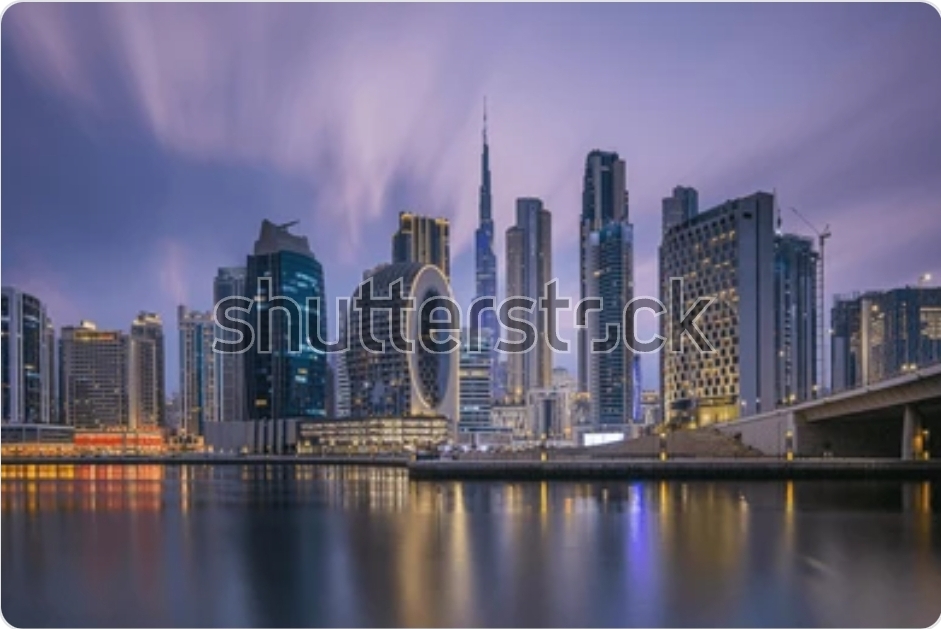
By: Editorial Team
The United Arab Emirates (UAE), often hailed as a beacon of modern development in the Middle East, is a federation of seven emirates—each with its own distinct history, ruler, and cultural identity. Since its unification in 1971, the UAE has stood as a rare example of how traditional monarchies can collaborate to build a stable and globally respected nation.
At the heart of the federation lies Abu Dhabi, the capital and largest emirate, known for its vast oil wealth and political influence. The Al Nahyan family, which leads Abu Dhabi, has played a central role in shaping the UAE’s national vision and foreign policy. The current President of the UAE traditionally comes from this emirate, underscoring its leadership within the union.
Dubai, the shining star of the federation, represents ambition and innovation. Under the leadership of the Al Maktoum family, Dubai has transformed from a desert outpost into a global hub for finance, tourism, and technology. Its breathtaking skyline, led by the Burj Khalifa, has become a symbol of Arab progress and resilience.
Moving beyond the two powerhouses, Sharjah distinguishes itself as the cultural and educational capital of the UAE. Led by the Al Qasimi family, it has preserved the emirates’ artistic heritage while promoting academic excellence through its numerous universities and museums.
The smaller emirates-Ajman, Umm Al-Quwain, Ras Al Khaimah, and Fujairah-each add unique character and strength to the federation. Ajman, the smallest, thrives on trade and manufacturing; Umm Al-Quwain offers a peaceful charm along its quiet shores; Ras Al Khaimah, nestled against the Hajar Mountains, is known for its natural beauty and growing industrial base; and Fujairah, facing the Gulf of Oman, plays a strategic maritime role in the region’s economy.
Despite their differences in size and resources, the seven emirates remain bound by shared values, mutual respect, and visionary leadership.Their collective success story reflects not only unity but also the ability to balance tradition with progress.
Over five decades after its founding, the UAE continues to prove that cooperation among monarchies can yield a modern, forward-looking state-one that honors its past while boldly stepping into the future. The federation’s model of governance offers an enduring lesson in leadership, stability, and nation-building in a region often defined by division.
Photo Credit: shuterstock
Editorial
The Modern Avatar of Agadagba
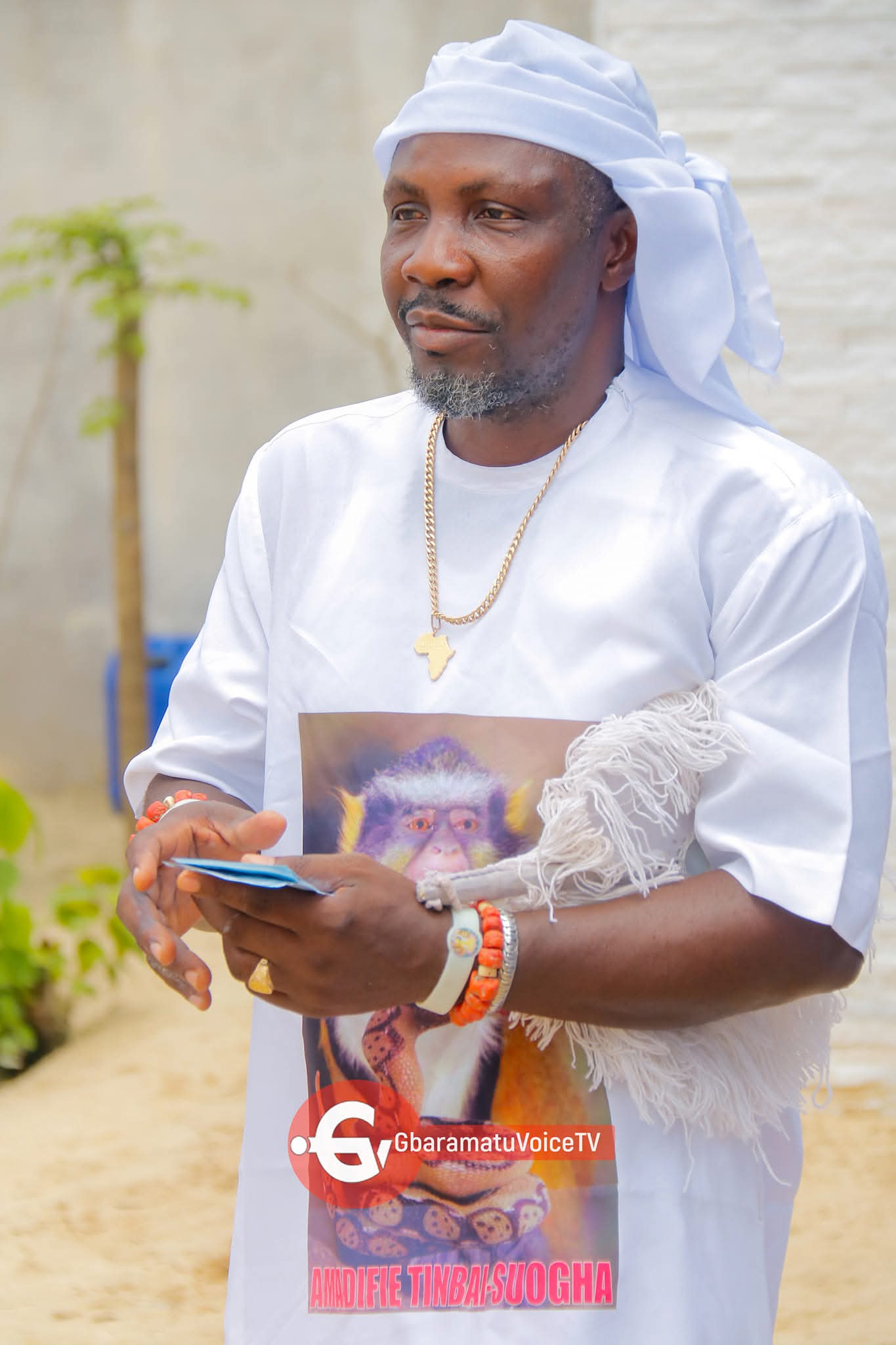
Editorial – IduwiniVoice
Government Oweizide Ekemupolo is 4th Century descendant of The progenitors of the Oru tribe, the archetypal Ijaws, who settled in the central Niger Delta and over time, who developed and spread to the entire Niger Delta. He his an embodiment of the ancient and modern ways and forces of the ijaw ancestral greats, ruled my ancient spiritual and human laws, a man and a superman.
Prior to 1600 AD, the Ijaws first and formally formed city-states on their island of abode in Central Niger Delta. The city-states were named Agadagba-bou, Isomou-bou, and Opugla-bou. The popular city-state was called Agadagba-bou, which, according to history, flourished for 400 years until it got abandoned in 1050 CE. That was the period Ijaw people migrated within the central Niger Delta and spread to the Western and Eastern Niger Delta.
Agadagba-bou, Isomou-bou, and Upugla-bou, which represented the Ijaw civilization at the historical island, long before it was named Wilberforce Island, had cultural, spiritual, linguistic, and occupational homogeneity.
They were all worshippers and believers of the sky God. The sky God that the Ijaws call today, even from ancient times, is Egbesu. It is believed that the Wilberforce Island was known as a forest named after Agadagba, the most powerful chief priest of Egbesu, who also doubled as the military general of the Izon nation.
Agadagba-bou, as a nomenclature, derives its bearing from Agadagba, the chief priest and generalissimo who once reigned on the Wilberforce Island. It is certain that the island hosted the Ijaw nation long before the time of Agadagba because Agadagba was appointed a chief priest and military general during his time by a potentate ruler of Ijaw nation.
In the primordial mists of time, Agadagba, the illustrious military general and chief priest of Egbesu, strode forth from the hallowed grounds of Agadagbabou, his footsteps echoing through the annals of Ijaw history. This revered figure, a paragon of martial prowess and spiritual wisdom, embodied the dual essence of his people, wielding the sword and the sacred staff with equal aplomb. The whispers of the ancients tell us that Agadagba’s reign predated the 1600 AD, a bygone era when the Ijaw nation thrived in harmony with the rhythms of the Niger Delta.
Agadagbabou, the cradle of Ijaw civilization, slumbers beneath the weight of centuries, its sacred soil serving as the final resting place of the ancestral spirits. Here, the venerable dead lie entombed, their ethereal essences lingering, awaiting the supplications of their descendants. Alas, the diaspora of the Ijaw people has occasioned a lamentable disconnection from these archetypal forebears, a severance that has hindered the unfettered flow of ancestral blessings, those numinous benedictions that are the birthright of every society.
For it is an immutable truth that the progress of a people is inextricably linked to the approbation of their ancestors.
The epochs have passed, and Agadagba’s terrestrial sojourn has long since drawn to a close, yet the imperishable essence of this legendary figure endures, awaiting reification in the mortal coil. Behold, 4.18 CENTURIES AFTER AGADAGBA, PRICESELY FOUR CENTURIES PLUS, in this our age, Government Oweizide Ekemupolo, a worthy scion of the Ijaw nation, has arisen, invested with the sacred mantle of Egbesu’s chief priest and military general. The symmetries are striking, the correspondences unmistakable: Ekpemupolo stands forth as the avatar of Agadagba, a reincarnation of the primordial hero, reborn to reclaim the lost patrimony of his people.
As we gaze upon Ekpemupolo, we behold the rekindled flame of Agadagba’s indomitable spirit, a fiery essence that refuses to be extinguished. The mythopoeic imagination whispers secrets in our ear, intimating that this modern-day embodiment of Ijaw valour and spirituality is, in truth, a Priest of the ancient mysteries, a hieratic vessel ordained to restore the pristine glory of Agadagbabou and reestablish the vital link between the living and the ancestral dead.
Thus, the epicycle of time turns full circle, as the reincarnated Agadagba, in the person of Ekpemupolo, strides forth to reclaim his rightful place within the sacred precincts of Ijaw tradition. The word is a witness to his spiritual and endeavours which catalyse a renaissance of the Ijaw spirit, rekindling the ancestral fires that burn bright within the collective unconscious of this venerable people, and guiding them toward a future illuminated by the radiant glow of their archetypal forebears.
As Tompolo’s efforts continue to bear fruit, Nigeria’s economic landscape is transformed, and the nation’s people reap the benefits of his tireless endeavours. His legacy will forever be etched in the annals of Nigerian history, a shining testament to the power of visionary leadership and unwavering dedication to the nation’s progress.
Benedict Binebai is a Professor of African Literature, a Social Conscientizer, and a Critic of outstanding repute.
(c) IduwiniVoice
Editorial
A Magnificent Gesture of Philanthropy: Tompolo’s Landmark Donation 10 Billion Naira to Delta State Government
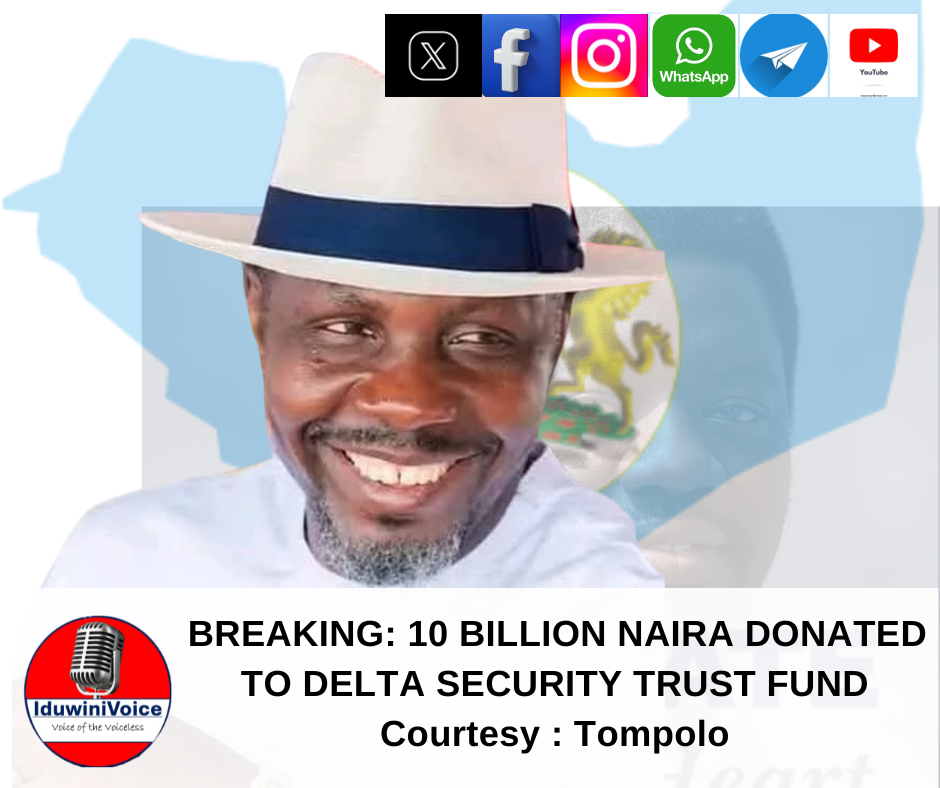
Editorial
Chief Tompolo’s most generous bestowal of 10 billion naira upon the Delta State Security Fund is a magnificent affirmation of his steadfast devotion to the betterment of his beloved homeland. This munificent act not only underscores his profound solicitude for the well-being of the citizenry, but also serves as a sonorous confirmation of his dedication to the edification of the nation.
This magnificent donation bespeaks Chief Tompolo’s perspicacious vision for a Delta State wherein the territorial integrity, individual safety, and proprietary rights of its inhabitants are zealously safeguarded and protected. For it is an immutable truth that security constitutes a fundamental pillar for peaceful and progressive human existence, and a people that get security right are a people who enjoy prosperity, stability, and tranquillity. His largesse constitutes a clarion call to all right-thinking Nigerians to emulate his exemplary conduct, thereby contributing to the realisation of a more stable and prosperous nation.
As a private individual, Chief Tompolo’s remarkable munificence distinguishes him as a true architect of society, a philanthropist of discerning taste, and a stalwart champion of both private and public institutions. His actions evince a profound comprehension of the intricate nexus between security, patriotism, and nation-building, and serve as a shining exemplar for others to follow.
In the pantheon of benevolent figures, Chief Tompolo’s deed resonates with the selfless generosity of mythical beings like Prometheus, who defied the gods to bestow the gift of fire upon humanity, or Hercules, who cleansed the Augean stables to bring prosperity to the land. Like these fabled heroes, Chief Tompolo’s philanthropy emanates a profound sense of altruism, illuminating the path towards a brighter future for the people of Delta State.
By this singular act, Chief Tompolo has floated a most compelling narrative that the Ijaw nation, and indeed all ethnic groups in Nigeria, have a critical role to play in shaping the country’s destiny. His donation is a puissant statement that the resources and talents of Nigerians, regardless of their region or ethnicity, can be harnessed to forge a more united, secure, and prosperous nation, and that the Ijaw people, in particular, are committed to contributing to the construction of a brighter Nigerian picture.
Chief Tompolo’s unprecedented gesture inaugurates a new paradigm of leadership for the Ijaw nation, one that radiates an unparalleled aura of generosity, vision, and selflessness. This luminous exemplar of leadership kindles a guiding light, illuminating a path towards a more prosperous, equitable, and enlightened future for the Ijaw people, and serves as a resplendent model for leaders across Nigeria and beyond, demonstrating that true greatness is measured by the ability to uplift and empower one’s community.
Benedict Binebai is a Professor of African Literature, Public Speaker, and a renowned critic of intellectual acclaim.
(c) IduwiniVoice

